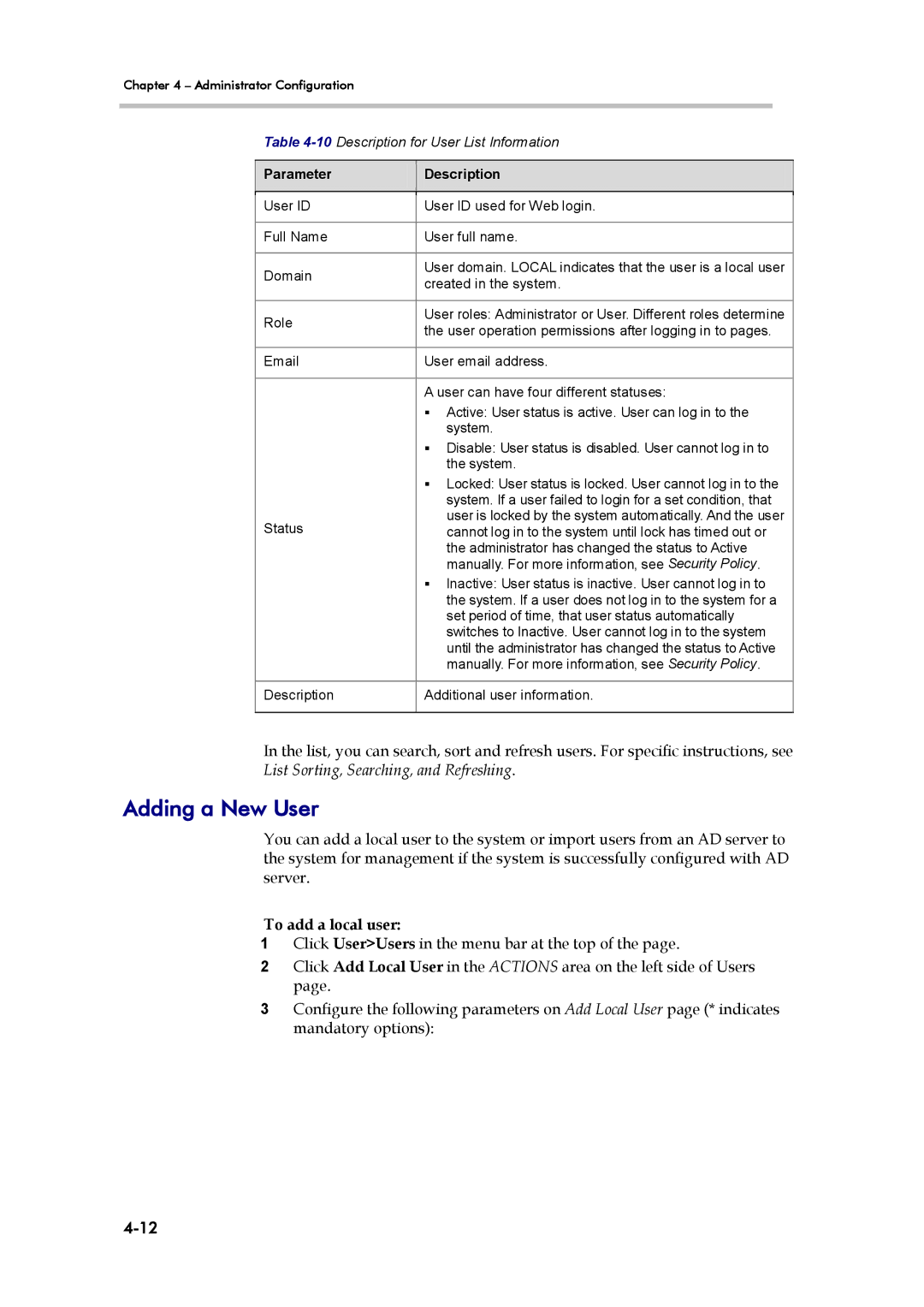
Chapter 4 – Administrator Configuration
Table
Parameter
Description
User ID | User ID used for Web login. | |
|
| |
Full Name | User full name. | |
|
| |
Domain | User domain. LOCAL indicates that the user is a local user | |
created in the system. | ||
| ||
|
| |
Role | User roles: Administrator or User. Different roles determine | |
the user operation permissions after logging in to pages. | ||
| ||
|
| |
User email address. | ||
|
| |
| A user can have four different statuses: | |
| Active: User status is active. User can log in to the | |
| system. | |
| Disable: User status is disabled. User cannot log in to | |
| the system. | |
| Locked: User status is locked. User cannot log in to the | |
| system. If a user failed to login for a set condition, that | |
Status | user is locked by the system automatically. And the user | |
cannot log in to the system until lock has timed out or | ||
| the administrator has changed the status to Active | |
| manually. For more information, see Security Policy. | |
| Inactive: User status is inactive. User cannot log in to | |
| the system. If a user does not log in to the system for a | |
| set period of time, that user status automatically | |
| switches to Inactive. User cannot log in to the system | |
| until the administrator has changed the status to Active | |
| manually. For more information, see Security Policy. | |
|
| |
Description | Additional user information. | |
|
|
In the list, you can search, sort and refresh users. For specific instructions, see List Sorting, Searching, and Refreshing.
Adding a New User
You can add a local user to the system or import users from an AD server to the system for management if the system is successfully configured with AD server.
To add a local user:
1Click User>Users in the menu bar at the top of the page.
2Click Add Local User in the ACTIONS area on the left side of Users page.
3Configure the following parameters on Add Local User page (* indicates mandatory options):
